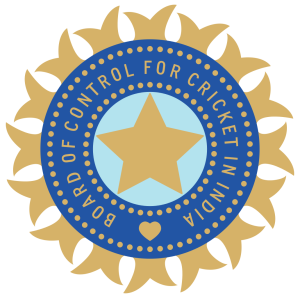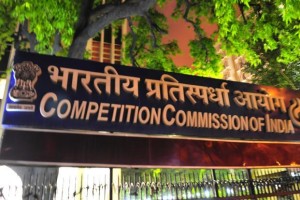The Board of Control for Cricket in India (BCCI) was penalized with penalty in excess of INR 520 Million for abuse of its dominance in while conducting Indian Premier League (IPL) tournaments and also for grant of exclusive media rights for broadcast of the IPL matches to a particular TV channel ( SONY TV) for a period of 10 years.
The Competition Commission of India (“Commission/CCI”) vide its Order dated 29.11.2017 has re-imposed the penalty of INR 52.24 Crores on the Board of Control for Cricket in India (“BCCI”) after fresh inquiry that concluded in July, 2017. In this recent order, CCI has reiterated all of its findings against BCCI as were found in its earlier order dated 08.02.2013 , which was set aside by the Competition Appellate Tribunal (COMPAT) vide its order dated 23.2.2015 in appeal filed by BCCI on grounds of ,inter alia, violation of principles of natural justice . COMPAT, vide its said order had remitted the case to CCI for getting fresh investigation conducted through the Director General (DG) and inquiry post investigation by it. Thereafter, upon considering the matter, CCI, vide its order dated 5th May, 2015, directed the DG to conduct further investigation into the matter in accordance with the directions contained in the above order of COMPAT. On the said directions, the DG filed the supplementary investigation report on 28.3.2016.
The penalty of Rs 52.24 Crores, on BCCI, which is nearly 4.48% of the average of the relevant turnover of revenue of BCCI from organization of professional domestic cricket leagues in India during the last three preceding financial years, is for abusing of its dominant position by restricting competition while conducting Indian Premier League (IPL) tournaments and also for grant of exclusive media rights for broadcast of the IPL matches to a particular TV channel ( SONY TV) for a period of 10 years.
The original complaint filed by an individual, Delhi based, “cricket fan” Mr. Surinder Singh Barmi, in 2010, (who did not appear before the CCI during the final hearings in this second inquiry), had alleged irregularities with the BCCI’s grant of franchise rights, media rights and sponsorship rights in the context of the IPL matches.
Issues involved
- Whether the BCCI is an “enterprise” within the meaning given by S 2(h) of the Act
BCCI’ arguments:
The BCCI argued that the BCCI is a not-for-profit society, established to promote the sport in the country and does not engage in any kind of commercial activity with the objective of earning profits. Therefore, it cannot be considered to be an “enterprise”, and consequently cannot be held guilty of abuse of a dominant position. (Reliance was placed on the SC decision in Cricket Association of Bengal Case and the commission’s decision in Arun Kumar Tyagi).
Commission’s decision:
The Commission was of the view that despite there being no profit motive, BCCI should be considered an enterprise. The commission observed that the definition of enterprise was wide enough to include within its purview any entity performing an economic activity. Since the definition did not require such entity to necessarily have a profit-motive, no such condition could be read into it. The Commission pointed out various economic activities undertaken by the Board, along with the fact that the ICC itself acknowledges such economic activities, to prove that BCCI is in fact an entity performing economic activities. Lastly the Commission backed its conclusion with a decision of the European Union in the case of (MOTOE) v. Elliniko Dimosio to conclude that BCCI should be considered as an “enterprise”.
- What should be the relevant market?
DG’s findings –
The DG defined the relevant market as the market for “organization of professional domestic cricket leagues/ events in India”. Interestingly, in the 2013 case, the DG had defined the market differently. However, the CCI had assailed the definition of the DG and held the relevant market to be “organization of professional cricket leagues/events in India”. Taking queue from the same, the DG in the present matter provided a similar definition, with a similar reasoning. The DG concluded that “professional domestic cricket leagues/ events are neither substitutable with general entertainment programmes nor with other sports nor even with other formats of cricket itself.
BCCI’s arguments –
The BCCI alleged that the DG had defined the market narrowly, and only considered the supply side and substitutability of the IPL. As per the BCCI, the DG was wrong in excluding other forms of entertainment programmes or other forms of sports from the relevant market. They argued that “cricket” faced serious competition with other sports and entertainment programmes for viewers” and pointed out some other entertainment shows and sports events having a higher TRP than IPL. Additionally, it was argued that IPL had been promoted, and viewed as an entertainment programme, and therefore it was telecasted on a general entertainment channel and not specific sports channel (the CCI failed to point out the fact that IPL is also telecasted on a specific sports channel –Sony SIX). It also contended that a particular format of cricket is only a way of conducting competition and does not denote a separate relevant market. In light of these facts, BCCI argued that the consumers view IPL and other entertainment programs and sport events (including other formats of cricket) as substitutable and hence, should form a single relevant market.
Commission’s Decision-
Differentiating cricket from other sports: The commission started the discussion with correctly noting the fact that ‘each sport has its own fan-following’ and followed this by quoting the Lodha committee report, to emphasize upon the strong consumer preference towards the game. Based on this, the commission concluded that the consumers in India would generally not substitute cricket with any other sport.
Differentiating professional T20 leagues from other formats of cricket: The CCI then moved on to differentiate International cricket or other domestic cricket with the professional leagues, such as the IPL. The CCI noted that in international/domestic cricket, the players represented the nation or the concerned state. However in profession leagues, even foreign players were involved and the main motive of everyone involved was that of earning profit. Further, due to the method of selecting players (by auction) and the sheer amount of commercial considerations involved, the Commission found IPL (and such professional leagues) to be starkly different from international/domestic cricket. Further, another point of differentiation that was pointed out was that watching a 3 hour IPL match is more convenient as opposed to International cricket matches which are generally much longer.
Differentiating IPL from other entertainment programmes: At last, the Commission set out to differentiate IPL from other entertainment programmes in order to refute BCCI’s argument “that all the entertainment programs form a single relevant market”. The CCI opined that the BCCI’s conclusion was based upon a mechanical application of the substitutability test. It pointed out that in contrast to other entertainment programmes, IPL could be followed from different modes, such as the radio, internet, newspaper or even the stadium itself. The SSNIP test was also used to conclude that “it was unlikely that the consumer would substitute IPL with other forms of entertainment programmes. Lastly, the CCI also pointed to the BCCI’s representation in the IPL media rights agreement to reason that even the BCCI felt that only other professional leagues could compete with the IPL.
- Is BCCI dominant in the defined relevant market?
Based on BCCI’s ICC membership, the BCCI rules, the pyramid structure of the cricket in India, and the financial prowess of the BCCI, the CCI concluded that BCCI was dominant in the relevant market. (Even the BCCI did not object to the same).
- Has the BCCI abused its dominant position?
The CCI, while recognizing the need for regulating cricket in the country in order to maintain the “integrity of the sport”, still held that the impugned restrictive representation given by the BCCI as an abuse as it “resulted in denial of market access” for the competitors of the IPL.
The CCI observed as per the BCCI rules (Rule 28B) of the BCCI Rules, no affiliated member, player or umpire could participate/ support a league unapproved by the BCCI. In such a case, no one would be able to conduct a meaningful league without the BCCI’s approval. Since BCCI has given a representation that it would approve no professional league for “10 years”, it would mean that the market is foreclosed and the competitors are denied access. Further, the BCCI could not provide any reasoning as to why the impugned representation could help in the healthy regulation of the game in the country. Therefore, the BCCI was held guilty of abuse of dominance.
THE ORDER
Apart from imposing the penalty, of Rs. 52.24 Crores, CCI has directed BCCI to cease and desist from any practice in future denying market access to potential competitors, including inclusion of similar clauses in any agreement. CCI has also asked BCCI to desist from using its regulatory powers in any way while considering and deciding on any matters relating to its commercial activities. CCI has further directed that BCCI will set up an effective internal control system to its own satisfaction, in good faith and after due diligence. BCCI shall not place blanket restriction on organization of professional domestic cricket league/ events by non-members. Having done the above, BCCI shall issue appropriate clarification regarding the rules applicable for organization of professional domestic cricket leagues/ events in India, either by members of BCCI or by third parties, as well as the parameters based on which applications can be made and would be considered. Besides, BCCI shall take all possible measure(s) to ensure that competition is not impeded while preserving the objective of development of cricket in the country; and BCCI shall file a report to the Commission on the compliance of the aforesaid directions within a period of 60 days from the receipt of this order.









